Pre Workout vs Protein Powder: What’s the Difference?
Author:
Unlock your full potential by engaging with our experts and community! Have questions about your fitness journey or looking for expert advice on weightlifting techniques? Don’t hesitate — leave a comment below and Oleksandr Maksymenko will provide a personalized answer and insights to help you reach your goals.
Torokhtiy is reader-supported. Some links are affiliate links, and we may earn a commission at no extra cost to you. See our disclosure page for details.
Choosing the right supplement for your workout routine can be a daunting task. With so many products on the market, it’s hard to know which one is right for you. If you want to know the difference between pre workout vs. protein powder, keep reading to find out!
Pre workout vs. protein powder: Both are useful for different purposes. Pre-workout usually contains caffeine as a stimulant and other ingredients which help to improve physical performance and increase the training volume. Protein powder is a concentrated source of protein necessary for recovery, muscle growth and minimizing muscle loss during cutting.
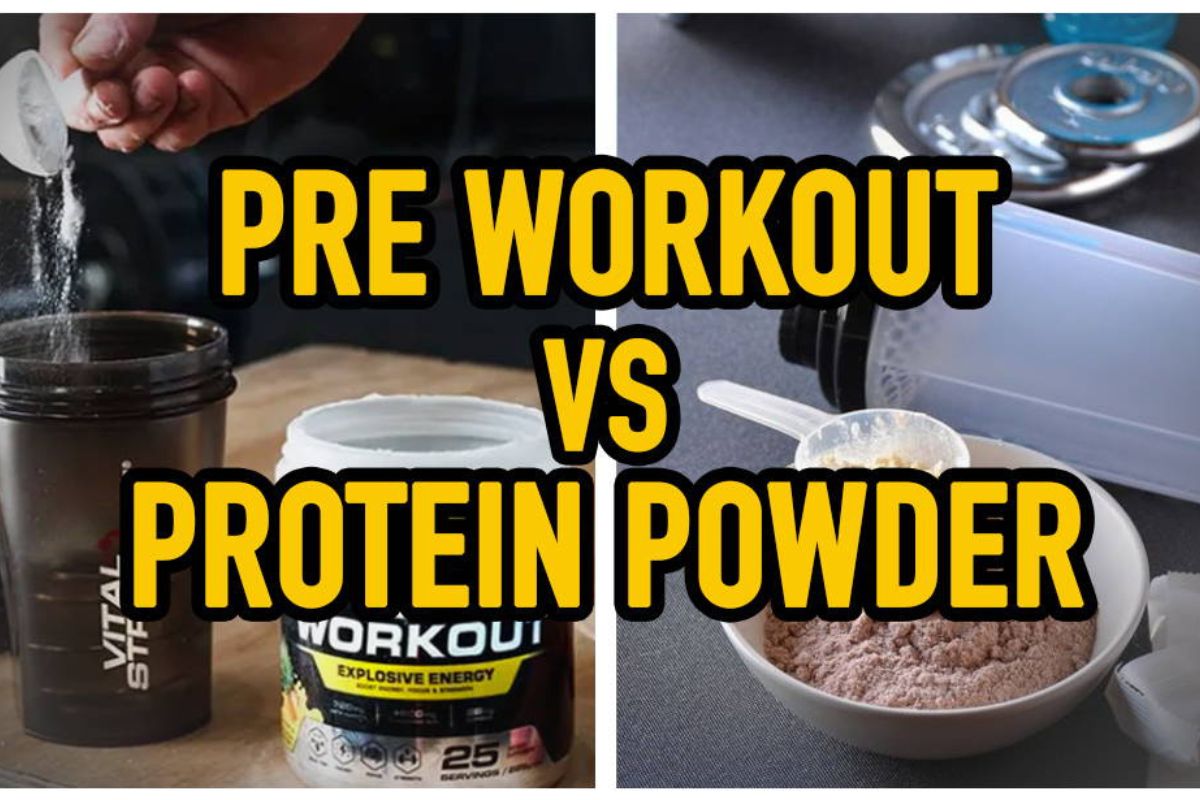
What Is Protein Powder?
If you don’t understand the difference between pre workout and protein powder, let’s take a quick look at these two types of supplements.
Protein powders are deservedly one of the most popular supplements in the world of fitness and sport. It’s made by extracting protein from sources such as milk (whey and casein protein powders), eggs, soy, pea and other sources in a powdered form. Not only is protein powder convenient for anyone looking to increase their protein intake, but it also provides some important micronutrients. For example, whey protein contains a significant amount of calcium per serving, casein contains a huge amount of calcium, and pea and hemp proteins contain significant amounts of iron.
Protein powders greatly facilitate the task of consuming the needed amount of protein, saving time for food preparation. If you find it difficult to eat the needed amount of protein from whole foods, a serving or two of protein powder will make it easier.
Sufficient amount of protein helps to build and maintain muscle mass, as well as minimize its loss during weight loss phase. If you’re bulking, you can get lots of protein without feeling like you can’t eat any more food. If you’re cutting, a protein powder with zero to minimal fat and carbohydrates may be your most convenient source of a concentrated serving of protein with the fewest calories possible.
You can make protein shakes and smoothies, add the powder to oatmeal or other cereal, make protein pancakes, and even bake with it. This versatility makes it an excellent choice for busy fitness enthusiasts looking for a quick and easy protein fix or athletes who just need a high amount of protein to effectively recover and grow muscles from hard training. So if you’re looking to increase your protein, consider trying some protein powder!
What Is Pre-workout?
Pre-workout is a supplement that consists of ingredients to give you the energy boost, increase overall athletic performance and focus through tough workouts. The key ingredient in pre-workouts is caffeine (excluding caffeine-free versions), which provides a stimulating effect. Additional ingredients are most often beta-alanine, creatine, as well as l-citrulline, betaine and other components.
However, this is the kind of supplement that makes sense to use after you’ve passed at least the beginner stage in training. Before you buy your first pre-workout, you should already build up a significant amount of muscle mass, strength and generally achieve a good level of physical fitness.
When you reach a training plateau or your progress will decrease very much (and this is provided that your nutrition, training program and recovery is already optimized), then it makes sense to think about the first purchase of a pre-workout. What cannot be said about protein powders, which can be used even by people who do not engage in fitness or sports at all.

Pre Workout vs Protein Powder
In order for you to better understand the difference between the two types of supplements, we will now look at some of their characteristics.
Processing of Protein Powder vs Pre Workout
Depending on the raw materials used for the production of protein powder, these products are of animal or plant origin. The most popular protein powders of animal origin are whey and casein. For example, whey protein is obtained in the process of cheese making by adding enzymes to milk that separate whey from the casein part. Next, the whey goes through the processes of filtration and drying to form a powder.
For the production of plant based protein powders, the initial raw materials are cleaned of the outer shell, grounded into a fine flour, and under the action of enzymes, the protein part is separated from the starch. Depending on the specific source (hemp, pea, rice), production methods differ. However, in the final result we get a powder form of plant-based protein.
For the production of pre-workouts, powder forms of individual ingredients, which are produced from different substrates, are mixed into one product. For example, caffeine can be produced either by extraction from natural sources (for example, from kola nut, cacao bean or guarana berries), or by chemical synthesis from urea and chloroacetic acid (however there is no chemical difference between synthetic and naturally sourced caffeine). All the necessary components of pre-workout can be blended in needed amounts to create the required formula. Additionally, most pre-workout supplements have fruit-based flavors, which are added using various natural and artificial ingredients.
So, is pre workout the same as protein powder? If you were looking for an answer to this question, now you know for sure that these are completely different types of supplements.
1. Average Macros per Serving
Protein Powder
Generally, protein powders contain 20-25 grams of protein (although vegan powders often contain 15-20 g), with 0-5 grams of fat, 0-10 grams of carbs (vegan versions usually contain closer to the upper range), and 100-160 calories per serving.
Pre-workout
Pre-workouts are fat-free, most are carb-free, although some may have a few grams of carbohydrates. Does pre workout have protein? No, but it may contain amino acids, such as BCAA or tyrosine, which still have calories.
In general, pre-workouts are not the type of supplement that contains a significant amount of calories per serving. However, if you are in the final stage of cutting and meticulously counting every calorie, you should still consider the calories you can get from pre-workouts that contain a few grams of carbohydrates and amino acids.
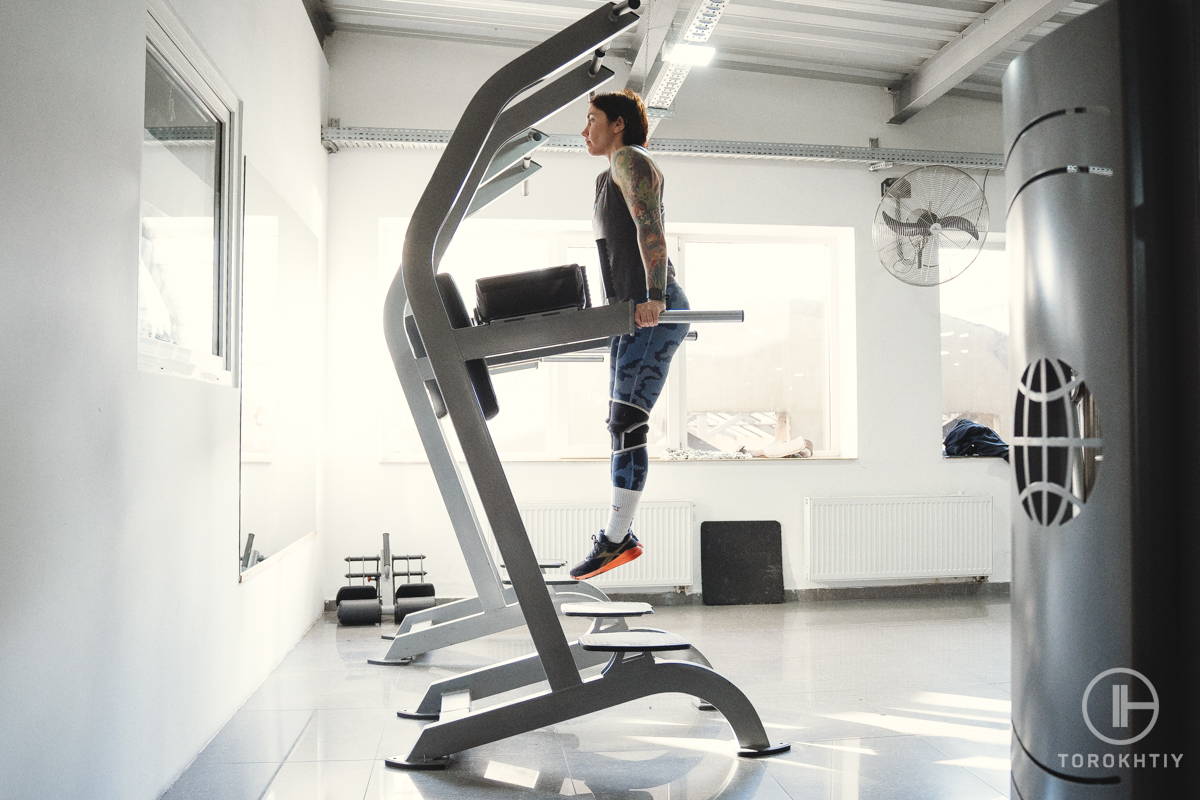
2. Price Range
Protein Powder
Each serving of protein powder will cost $1-2, with the price going up or down depending on the source (vegan or animal-based), type of protein (concentrate or isolate), and specific brand. For example, whey protein isolates are more expensive than whey protein concentrate due to additional filtration steps and a higher percentage of protein in relation to the total caloric content per serving.
That said, there are plenty of great-tasting and reasonably-priced options out there if you take the time to shop around.
Pre-workout
Depending on the brand that you choose, the overall ingredients breakdown, dosing of each ingredient and availability of third-party certification, the price per serving can range from as little as $0.6 to $2.5.
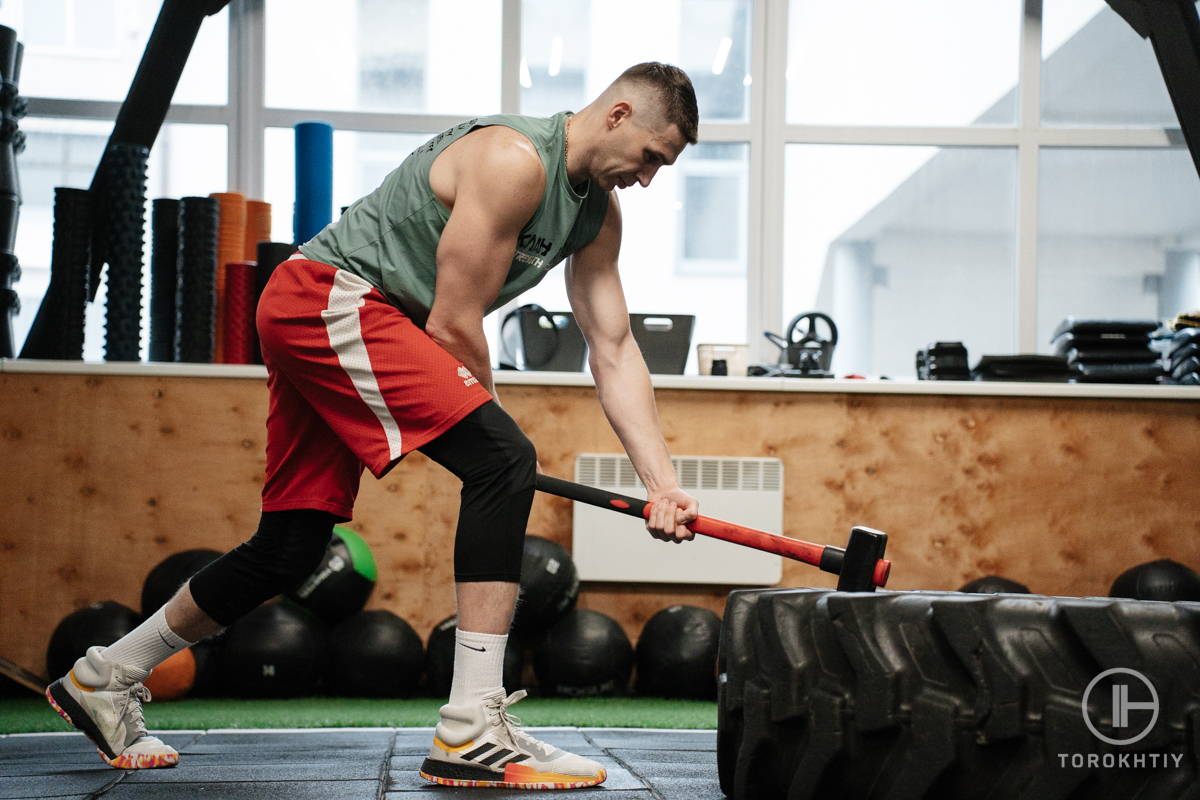
Protein vs. Pre-workout: Summary
Both supplements have different purposes and are therefore not interchangeable, so there really shouldn’t be a debate between pre workout and protein powder. In fact, you can use both supplements at the same time, although this requires further explanation.
In general, protein powders can be used by almost anyone, at any time of the day. What can not be said about pre-workouts. This type of supplement should be used by people with regular training experience, good caffeine metabolism, and only before training (preferably in the first part of the day, if we talk about caffeinated products).
Also, most studies looking at pre-workouts lasted less than 8 weeks, so the long-term safety profile of this type of supplement is still unknown. For this reason, it is better to follow the path of minimizing risks and take breaks when taking pre-workouts. On the other hand, protein powders can be used on a regular basis, especially if we’re talking about products from reputable brands that submit their protein powders to third-party testing.
Pros and Cons of Pre-workout
Positives:
Could be better:
Pros and Cons of Protein Powder
Positives:
Could be better:
Pre Workout vs. Protein Powder: When to Use Each
We’ve discussed the difference between pre workout and protein powder, and now we’ll go over when you should be using either supplement.
1. Pre-workout:
If you have been training regularly for a long period of time, have achieved results but stopped progressing and want to break through a training plateau, then you may want to try a pre-workout. They should be taken approximately 30-40 minutes before training.
However, consider your caffeine sensitivity and consult a doctor before buying your first pre-workout.
2. Protein Powder:
Protein powders can be used as an additional source of protein regardless of your training experience. If you want to add another serving of protein, or save time preparing a protein part of a meal, or have another option for a high-protein snack (for example, besides Greek yogurt), this is your choice! You can add protein powder to porridge or baked goods, and also use it in the form of a protein shake or smoothie.
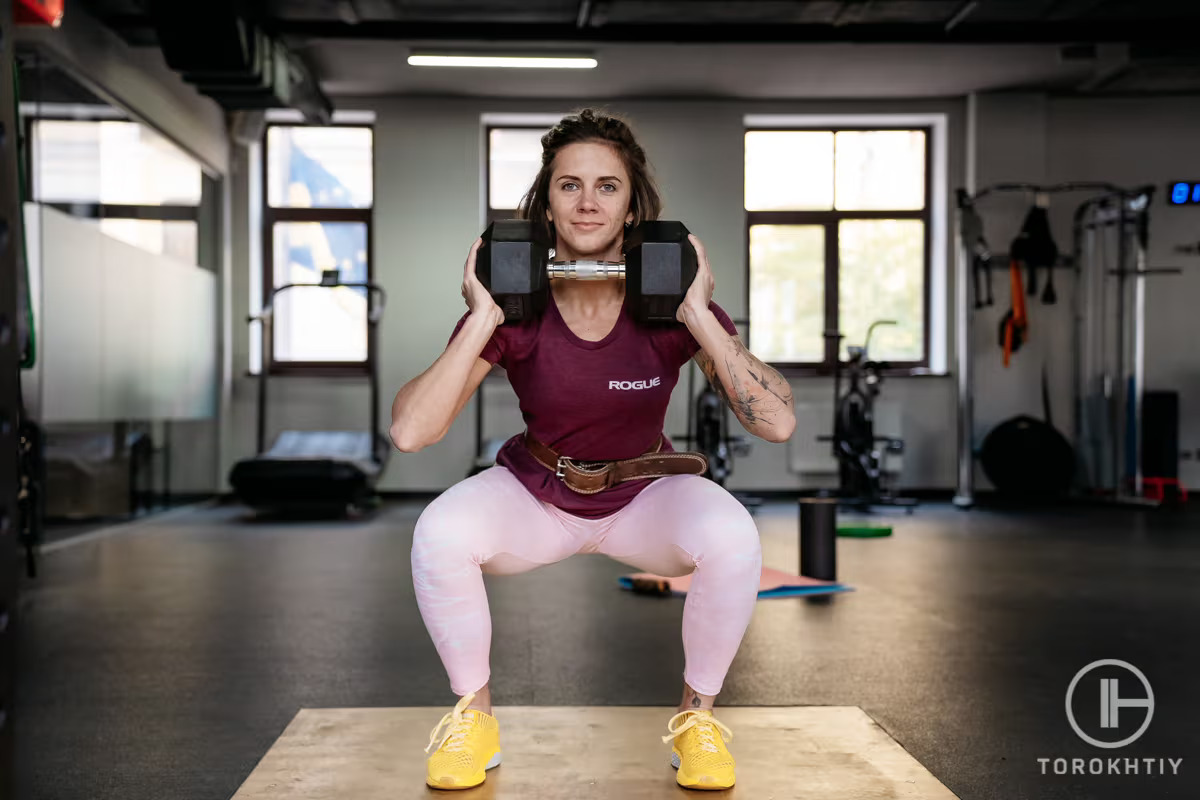
Products We Recommend
1. Transparent Labs BULK Pre-Workout Supplement
The Bulk from Transparent Labs offers a simple, straightforward solution for taking your training sessions to the next level. Containing no nebulous proprietary blends, this pre-workout is a favorite of many athletes worldwide. And there are several reasons for this.
This product contains caffeine and other key ingredients such as citrulline malate, betaine, beta-alanine and several additional ingredients. The key ingredients are contained in dosages that have demonstrated effectiveness in trials (but be prepared for a tingle from a large dose of beta-alanine). You can count on an energy boost, better muscular endurance, increased pumping and better focus during your training sessions.
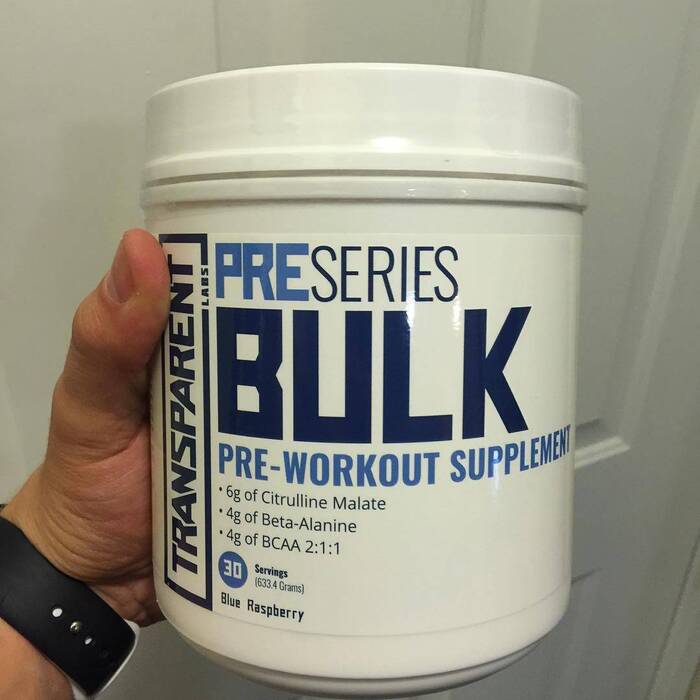
The dose of caffeine is 200 mg per serving, which is enough to obtain the effects, while reducing the risk of side effects. And the presence of theanine can reduce anxiousness and jitters that you may experience from caffeine. Overall, BULK is great for experienced athletes who have already taken pre-workouts with a lower dose of caffeine. For those who have never taken this type of supplement before, it is best to look for a product with a lower dosage of caffeine.
2. PlantFusion Complete Vegan Protein Powder
Complete Vegan Protein Powder by PlantFusion contains 4 plant protein sources that complement and improve each other’s amino acid profile. Each serving consists of 21 grams of protein and is also a good source of iron.

This protein has gotten a lot of good reviews about the taste, which is a big factor for a plant-based protein. Overall, with a solid ingredient list and macros, this protein powder is an excellent choice for any athlete, vegan or not.
FAQ
Does Pre-Workout Have Protein?
No, this type of supplement does not contain protein, although many pre-workouts contain some amino acids (which are the building blocks of protein).
Is Pre-Workout The Same As Protein Powder?
No, they are entirely different supplements with different purposes. Pre-workout gives you the energy boost and improves athletic performance during workouts, while protein powder helps cover daily protein needs.
Conclusion
To wrap up, both pre workout or protein powder can be useful supplements, although they serve different purposes. A pre-workout is a specialized sports supplement which is used only before training, while a protein powder is a convenience supplement, which is used at any time of the day and just helps cover the daily needs of protein.
Make sure to let me know which supplements you use in the comments!
Also read:
- Why Is Protein Powder So Expensive
- How Long Does It Take for Protein to Digest
- Protein vs Amino Acid
- Can You Drink Protein Shakes Without Working Out
- Egg Protein vs Whey Protein
- Protein Shakes After Cardio
- How Many Protein Shakes a Day
- Whey Protein vs Isolate
- Whey Isolate Protein Guide
References:
- Natural vs. Added Caffeine: What’s the Difference? // Foodinsight: https://foodinsight.org/natural-vs-added-caffeine-whats-the-difference/
- Caffeine (1, 3, 7-trimethylxanthine) in Foods: A Comprehensive Review on Consumption, Functionality, Safety, and Regulatory Matters // Ift: https://ift.onlinelibrary.wiley.com/doi/full/10.1111/j.1750-3841.2010.01561.x
- Energy content of diets of variable amino acid composition // Researchgate: https://www.researchgate.net/publication/20915822_Energy_content_of_diets_of_variable_amino_acid_composition
- Multi-ingredient pre-workout supplements, safety implications, and performance outcomes: a brief review // Jissn: https://jissn.biomedcentral.com/articles/10.1186/s12970-018-0247-6#Sec39
Why Trust Us?
With over 20 years in Olympic weightlifting, strength training, nutrition coaching, and general fitness our team does its best to provide the audience with ultimate support and meet the needs and requirements of advanced athletes and professional lifters, as well as people who strive to open new opportunities and develop their physical capabilities with us.
By trusting the recommendations of our certified experts in coaching, nutrition, and sports training programming, as well as scientific consultants, and physiotherapists, we provide you with thorough, well-considered, and scientifically proven content. All the information given in the articles concerning workout programming, separate exercises, and athletic performance, in general, is based on verified data.
The product testing process is described in more detail here.
Author: Oleksandr Maksymenko
Certified Sports Nutritionist,
MSc Sports Dietetics
Specializing in: Weight management, Fitness / Sports nutrition
Oleksandr is a professional fitness nutritionist certified by the Fitness Professional Association (FPA). He follows the principles of evidence-based dietetics and fosters a healthy relationship with food in his clients, ensuring there are no strict prohibitions on their favorite foods or frequent lapses. His primary goal is not only to achieve results for you but also to sustain them over the long term, all while enjoying tasty and delicious food.



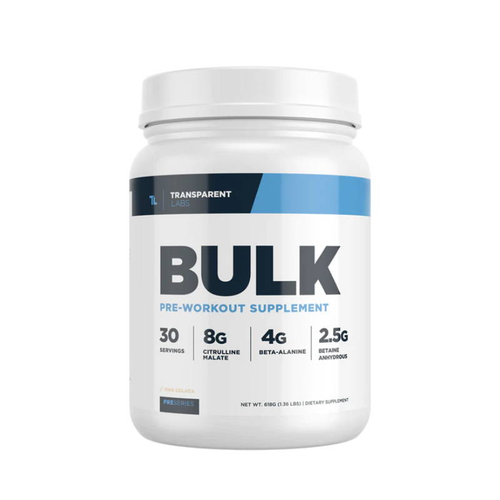
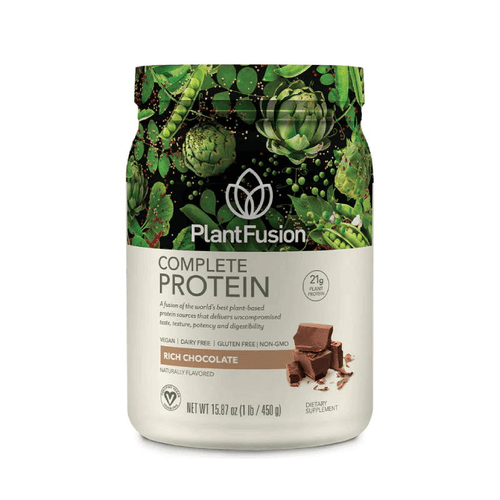
Still have questions after reading our article? Unlock your full potential by engaging with our experts and community! Don’t hesitate — leave a comment below and Oleksandr Maksymenko will provide a personalized answer and insights to help you reach your goals.